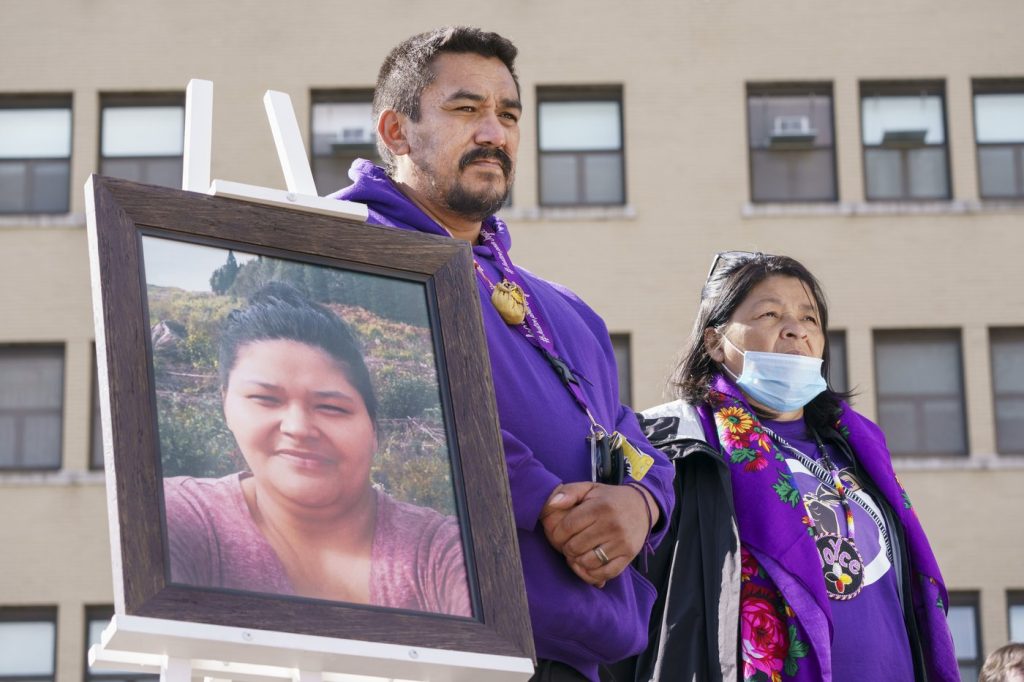Five years after the tragic death of Joyce Echaquan in a Quebec hospital, there remains significant work to improve the treatment of Indigenous people in the province's healthcare system. Echaquan, a 37-year-old mother of seven from Manawan, recorded a Facebook Live video in which a nurse and an orderly made derogatory and racist comments towards her as she was suffering in a hospital in Joliette, Quebec, just before her death on September 28, 2020. The disturbing footage went viral, prompting widespread outrage and condemnation across Canada.
The Quebec minister responsible for relations with First Nations and Inuit, Ian Lafrenière, acknowledges that restoring Indigenous peoples' trust in the healthcare system is an ongoing challenge. He stated that, although progress has been made, the biggest risk is to prematurely declare the issue solved. Lafrenière expressed caution in discussing the results, especially in light of the commemoration of Echaquan's tragic death.
A coroner's report concluded that Echaquan's death was accidental and due to pulmonary edema, but it also indicated that she would likely still be alive if she had been a white woman. The report identified systemic racism as a significant factor contributing to her death, recommending that the Quebec government recognize and eliminate systemic racism in institutions.
Echaquan's community advocates for the adoption of Joyce's Principle, which aims to ensure all Indigenous individuals have equal access to social and healthcare services without discrimination. However, this principle has not yet been adopted in Quebec. Jennifer Petiquay-Dufresne, an Atikamekw from Manawan and executive director of the Joyce's Principle Office, warns that another tragedy could happen if changes are not implemented. She believes that while some healthcare professionals are eager to adopt the principle, political constraints hinder progress.
Despite the challenges, Lafrenière's government has initiated actions, such as mandatory training on Indigenous cultural awareness for healthcare personnel. Petiquay-Dufresne has criticized this training, arguing that it was initially developed for Justice Department staff and does not adequately address the need for cultural safety in healthcare settings. Moreover, the provincial government adopted Bill 32 in December 2024, which establishes a cultural safety approach within the health and social services network. This law mandates annual reviews of culturally safe practices, with the first report expected in 2026.
While the government has formed a committee on cultural safety, which includes Indigenous community members and aims to provide recommendations to the health minister, Petiquay-Dufresne remains skeptical about the committee's potential effectiveness. She hopes that this committee will have the authority and responsibilities necessary to impact how care is delivered to Indigenous people and enhance accessibility to services.
The Coalition Avenir Québec (CAQ) government has faced criticism for its refusal to acknowledge systemic racism despite numerous calls following Echaquan's death. Lafrenière stated that the term "systemic racism" can polarize opinions, acknowledging that discrimination does exist in Quebec but hesitating to adopt the label of systemic racism. He has expressed openness to discussions on the matter but believes that simply recognizing the term will not resolve deeper issues of inequality.
Petiquay-Dufresne disagrees, asserting that acknowledgment of systemic racism is essential for meaningful change. She continues to hear reports of discrimination and racism within the healthcare system while also recognizing the efforts of individuals striving for reform. She argues that societal recognition of systemic racism is a critical step toward enabling action and fostering change within the healthcare system.











